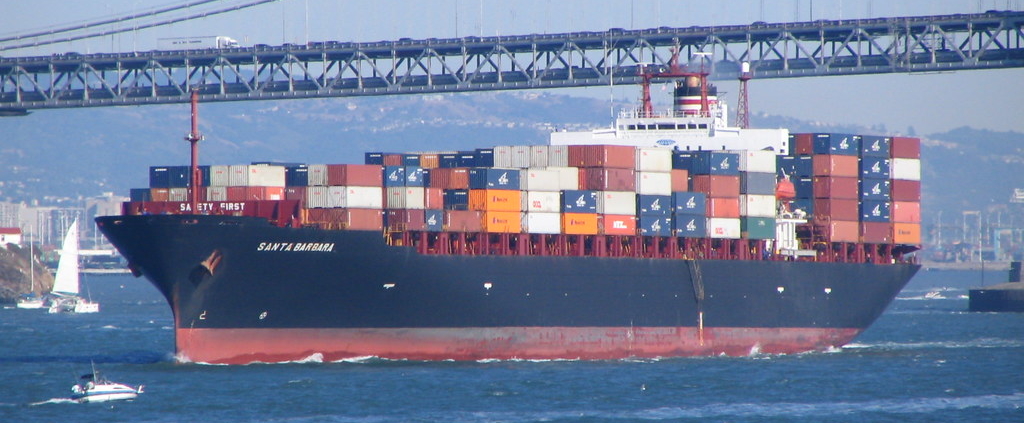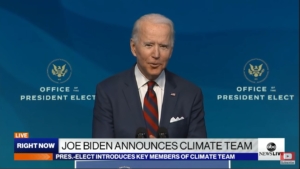Are You Ready for IMO 2020, Corporate’s Candidate Play, and Artificial Intell-inois
Here’s What You Need To Know
Are you ready for “the biggest change in oil market history”? If not, you may be in for a surprise next year. On January 1, 2020, a mandate will take effect impacting maritime trade and it is not getting the public attention it deserves. With more than 90% of the world’s trade carried by sea, the ramifications will be far-reaching, which is why the United Nations’ International Maritime Organization (IMO) 2020 emission standards should be on your radar.
Here’s what you need to know about this new rule and what it can mean for your organization’s operating landscape:
- What Is IMO 2020? IMO 2020 is a nickname for the mandate taking effect on January 1, which will require the more than 39,000 ships and tankers that sail international waters to either switch to lower-sulfur diesel fuels or alternative fuels, or adopt technologies that help their fleets reduce their sulfur emissions to meet the new standard. In 2016, the IMO made the decision to reduce the acceptable sulfur content in shipping fuels from 3.5% to 0.5%, in part because the standard fuel used by the world’s fleet produces 90% of the world’s sulfur emissions. In fact, 15 of the largest ships produce more sulfur than all of the world’s automobiles combined. The fuel change is supported by more than 170 countries, including the U.S.
- Shipping Costs Are About To Go Up For Businesses And Consumers: Maritime shipping is “by far” the most cost-effective way to move goods and raw materials, and the industry has been preparing its fleets to pass police inspections and avoid having vessels impounded when the mandate takes effect. It’s estimated that the container industry will spend approximately $10 billion to comply, with the two largest carriers – A.P. Moller-Maersk and MSC – incurring added costs of $2 billion each. These costs will go toward the added expense of switching to IMO 2020-compliant fuels such as cleaner low sulfur fuel or liquified natural gas (LNG), estimated to be 50% more expensive than current fuels, or toward installing costly exhaust scrubbers that remove sulfur oxides from current fuels (and that require ships to be taken out of service to install). According to consulting firm AlixPartners, the shipping industry will need to impose fuel surcharges ranging from 30% to 40% to offset the costs of compliance, which could increase the costs of goods by 5% to 10%.
- A Cold Winter Could Mean A Fuel Shortage: There is expected to be an oversupply of high-sulfur fuel oil and a demand for IMO-compliant products, which will put pressure on the refining industry to produce more low-sulfur fuels. Energy companies with refining capacity are well-positioned to take advantage of this need, as well as companies already producing low-sulfur crude and LNG, particularly as the shipping industry expands LNG-powered vessels. With IMO 2020 coming during the U.S. winter heating season, timing “could not be worse” should it be a very cold winter, and a surging American energy industry already facing challenges due to takeaway capacity, anti-fossil fuel activists, and their like-minded policymakers in elected office, may well create a shortage of needed fuel both domestically and for the shipping industry.
- Does IMO 2020 Help Or Hinder Outstanding Trade Deals? With negotiations for a U.S.-China trade agreement ongoing, the approaching mandate may put added pressure on both sides to come to an agreement before the end of the year in order to help minimize any disruption stemming from increased shipping costs that carry the vast majority of goods between the countries. Corporate interests operating in both countries could make a last-minute lobbying push to finalize the deal, and given the strength of the U.S. economy compared to that of China, the latter may want to remove further uncertainty by coming to an agreement. Regarding USMCA, while maritime shipping is not as critical for moving goods throughout North America, the approaching mandate could similarly influence corporate interests and policymakers to want to come to a breakthrough before the end of the year, or else risk the possibility that the Administration will follow through on its threat to withdraw from NAFTA – thereby adding further uncertainty to global trade.
- What Might The Mandate Mean For The Global Economy? When the supply of compliant fuels tighten and costs increase, the result could be fuel prices that increase by 20% to 30% as maritime fuel buyers are put in “direct competition with trucking, planes, trains, and other forms of transportation.” That can lead to more expensive prices for other modes of transportation, and in a globalized world that benefits from business travel, these increased costs could impact companies’ bottom lines in a range of industries. In addition, the mandate is likely to negatively impact Middle Eastern oil producers, like Saudi Arabia, who rely heavily on high-sulfur crude. With rising geopolitical tensions in the region and continuing challenges for the Saudi state oil company as it seeks to go public, it remains to be seen how the global economy will respond to IMO mandate-driven developments in the Middle East.
The “brick wall” of IMO 2020 has been built over the past two years, and if they haven’t yet, companies and organizations will need to run through it or find a way around it. For such an impactful regulation, the mandate has not gotten the attention it deserves, and it serves as an instructive lesson on how obscure multilateral organizations (to say nothing of the myriad of regulations made by federal agencies) can have large consequences. Going forward, the best protection against such consequences is to proactively monitor developments through the lens of a company’s or organization’s risk – and therefore anticipate the actions and better influence them to a favorable outcome for their interests.
Subscribe to Receive Insights
"*" indicates required fields
News You Can Use
CORPORATE’S CANDIDATE PLAY
The world’s largest retailer is taking a local approach when it comes to politics in its hometown. With seven of nine seats on the Seattle city council up for election, Amazon invested nearly $1.5 million dollars in an effort to support business-friendly candidates that may be more open to their interests. The council, which has included vocal company critics that enjoy the support of national politicians such as Sens. Bernie Sanders and Elizabeth Warren, has promoted policies targeting the company from increased taxes to mandated employee benefits.
When the dust settled, two of Amazon’s candidates won and we can speculate that it will have more success as it continues to invest in running candidates in key elections. This may in turn lead to a trend of corporate interests investing beyond general industry advocacy efforts and more in campaigns and candidates to protect and advance their interests when faced by governments filled with hostile policymakers.
ASTHMA SUFFERERS FACE GREEN PERIL
Climate change could soon force people living with asthma to make a life or death decision – whether they want to or not. A new study by Cambridge University researchers claims asthma has a carbon footprint “as big as eating meat” because inhalers release greenhouse gases linked to climate change. The researchers argue patients should switch to “greener” medications and that these patients should become vegetarian to reduce their environmental impact.
However, switching to a new type of inhaler can create health complications and is simply not an option for all patients – which may be why researchers also are putting pressure on pharmaceutical companies to find ways to reduce their carbon footprints. The beginning of the evaluation of medications and treatments through the lens of climate change that people living with illnesses depend on represents a worrying trend, and if patients and companies that use and produce such medications do not prepare to defend these treatments, pressure could build for government to force patients to change medicines, even if it impacts their health.
ARTIFICIAL INTELL-INOIS
Companies have increasingly started using artificial intelligence (AI) in the hiring process to help screen the deluge of candidates that apply to any single posting. Some algorithms seek to infer characteristics about job performance through facial and voice recognition technology that examines traits such as brow raising, eye widening, use of language, and other verbal skills, spurring ethical and legal concerns. In response, the state of Illinois has adopted legislation to limit facial recognition use, citing possible discrimination on the basis of race and gender and biases toward previously successful candidates that could lead to homogeneity in employees.
Illinois’ law is the first of its kind and will go into effect on January 1, 2020, likely serving as a model for similar laws in other states and potentially for future regulation at the federal level. For companies producing this technology, those using it, as well as policymakers and regulators, the implications of Illinois’ law will serve as an important test case as we move deeper into the 21st century.
ON-CAMPUS LIVING VOTES
The most important battleground in next year’s election may not even be a state. Political groups on both sides of the aisle are honing in on college campuses in the hopes that student turnout could impact tight races in swing states. The tactic was recently used in 2018 by now-Democratic presidential candidate Tom Steyer’s NextGen group, which spent $38 million on campus voter participation efforts and is expected to be active again in 2020. Meanwhile, conservative groups such as Turning Point USA are currently outspending their counterparts on the left.
While politics on campus is nothing new, the concerted effort by political groups to swing (and there are even reports to suppress) college voters suggest that campaigns believe they can get more students to register using their campus address than in the past, rather than remaining registered back home as has been traditionally the case. If successful in securing results in coveted swing states, this tactic will make campaign professionals in the future think twice about shaking off the views of vocal students or conceding their votes to a particular party.



